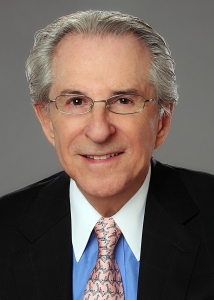2021 – Will this be the year we finally move past the endless drug price debate?
2021 – Will this be the year we finally move past the endless drug price debate?
By Sander A. Flaum, MBA, Principal, Flaum Navigators, Advisory Board Member and Executive-in-Residence, Fisher College of Business, The Ohio State University
Cynics might say “Not a chance, especially after the election,” but also add: “Not to worry, either.” Throughout the campaign, both parties bemoaned skyrocketing drug prices and unbridled pharma greed. Yet we all know that politicians have short memories and skill at forgetting promises. As gridlock sets in, I’m confident we’ll be spared from Federal price controls – at least for now.
But who needs cynicism? Instead of counting on our critics to fail, let’s consider how we in pharma and biotech can preempt their attacks by becoming even more proactive and successful in addressing unmet healthcare needs. We can do this by building on the can-do, cooperative attitude we demonstrated virtually from the outset of the pandemic.
The problem has always been how we can continue to create breakthrough treatments, while keeping prices at levels that will sustain our business, yet are still manageable within our chaotic healthcare system. One part of the answer is to continue to do what we do best and to do it better than ever before. The next part is to continue to grow and adapt.
The direction that appears to offer the most promise lies the spirit of genuine unselfish cooperation we demonstrated in the early days of the pandemic. Even Bill Gates, who has not always been a fan, remarked in a recent interview about “the great work that pharma people are doing” and how helpful our industry can be in times of crisis.
Pfizer and AstraZeneca singing “Kumbaya” is one approach. How else can we harness the power of cooperative action? Here’s an example. The National Cancer Institute (NCI) and Cancer Research UK recently formed an initiative called the Cancer Grand Challenges. Operating with pooled funds totaling $550 million, this trans-Atlantic partnership is encouraging multi-disciplinary research teams to “think creatively and act more boldly” in order to accelerate progress against cancer. GCC offers four annual $25 million awards over five years for teams willing to take on specified challenges in cancer treatment. These include developing 3D tumors to help physicians use virtual reality to hone their diagnostic and therapeutic skills. Another team is developing novel techniques for manipulating the vast number of microbes inhabiting the human microbiome.
Here’s another example. Do you remember Civica Rx? This is a nonprofit generic drug company that was created a few years ago by hospital administrators. Frustrated by a chronic shortage of basic drugs used in critical care, and worried by quality issues in generics being produced in China and India, not to mention the lack of reliable FDA oversight, the group decided to bypass the usual supply chain and make their own medications.
When Civica Rx was founded, many in our industry saw it as potential competition. But over time, it is evident that the organization can work efficiently and fairly with all parties, including pharmaceutical manufacturers, to help protect our hospitals from shortages and safety recalls.
Here’s a final example of cooperation. Seven years ago, two bright undergrads at Brown University had an idea for preventing brain cell death in neurodegenerative disease. Instead of being ridiculed by industry professionals, administrators and scientists worked with the pair to lead them through the process of research and development. Today they have their own company, Amylyx, and they’re conducting Phase II/III trials in ALS, and recently published data in the New England Journal of Medicine.
My takeaway from these ventures is collaboration. The more open we are to new ideas and new relationships, the stronger we will all be in the future. 2021 may be a very memorable year indeed!




